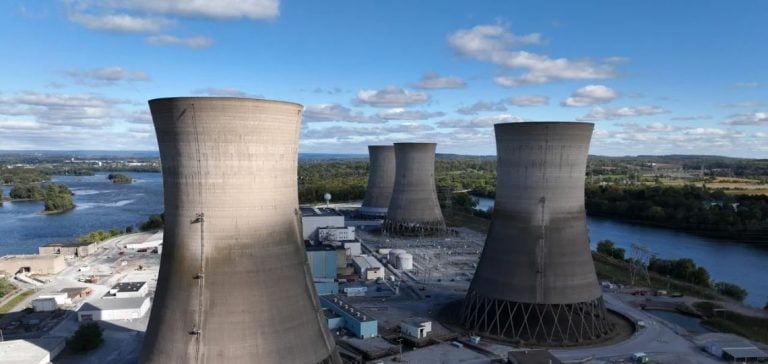The project to restart the Three Mile Island nuclear plant by Constellation Energy, with financial support from Microsoft, represents a key milestone for the U.S. energy sector. Shut down in 2019 due to economic reasons, Unit 1, now renamed the Crane Clean Energy Center, will be reactivated to power Microsoft’s data centers with clean energy under a 20-year agreement. This partnership will generate 835 MW of decarbonized electricity while creating over 3,400 direct and indirect jobs. The goal is to restart the plant by 2028 after modernizing critical infrastructure such as cooling systems and generators.
A project with energy and economic stakes
The strategic importance of this project lies within the current energy context. The Three Mile Island plant, closed in 2019, was once a symbol of nuclear energy in the U.S., despite the accident that occurred at Unit 2 in 1979. However, Unit 1, which was independent of that incident, had operated efficiently with a 96% availability rate, well above industry standards.
Constellation Energy plans to make massive investments to bring this infrastructure back online to meet the growing demand for clean electricity, especially for technology giants like Microsoft, which are aiming to achieve carbon neutrality. The increasing energy needs linked to data centers, particularly for advanced technologies like artificial intelligence, make nuclear energy a viable short-term solution, complementing renewable energy sources.
Modernization and technical challenges
The rehabilitation of Unit 1 requires significant work. Cooling systems and the 113-meter cooling towers must be fully modernized. Constellation Energy also plans to invest in new technologies to improve the plant’s efficiency and ensure its compliance with current safety standards.
However, the project faces regulatory challenges. The Nuclear Regulatory Commission (NRC) and local authorities will need to approve various phases of the reactivation. Additionally, environmental concerns are being raised, particularly regarding the management of nuclear waste and the impact of using water from the Susquehanna River to cool the plant.
Local opposition and political support
Despite the expected economic and energy benefits, the project faces significant opposition from environmental activists. They denounce the risks associated with nuclear waste management and the use of water resources. However, project supporters, including Pennsylvania Governor Josh Shapiro, emphasize its importance for the local economy and for meeting long-term climate goals.
A recent poll shows that two-thirds of Pennsylvania residents support the reopening of Three Mile Island, citing the jobs created and the predicted economic benefits for the state. Constellation Energy estimates the project could generate over $3 billion in direct and indirect economic impact.
A model for the future of nuclear energy
This project is part of a larger trend of nuclear energy revival in the U.S. While the development of new reactors, particularly small modular reactors (SMRs), remains slow, reactivating older plants is emerging as an immediate solution to meet the growing demand for decarbonized electricity.
The Three Mile Island example could serve as a model for other closed reactors, such as Palisades in Michigan, which authorities are also considering reopening. Microsoft’s involvement in this initiative may prompt other tech companies to follow suit, reinforcing the integration of nuclear energy into the energy strategies of large corporations.






















